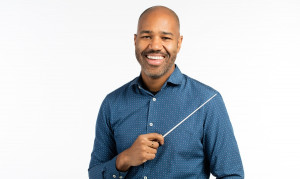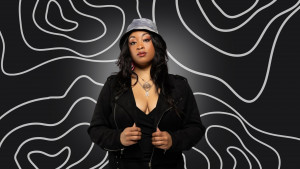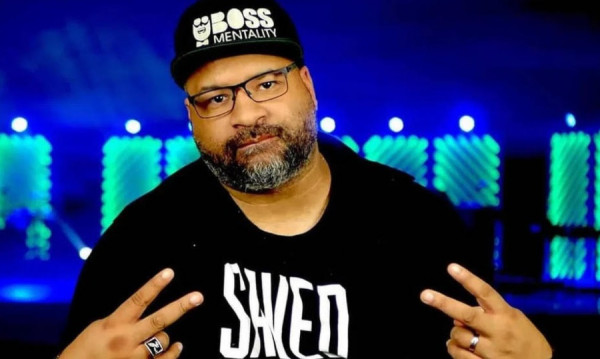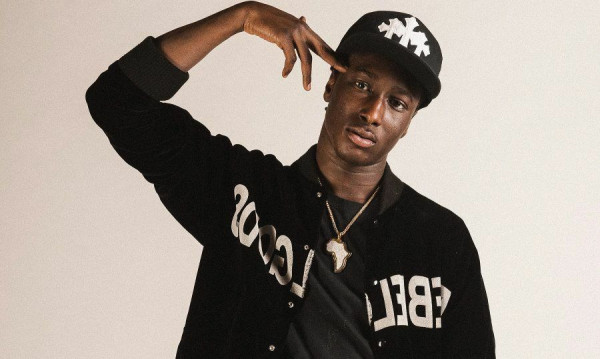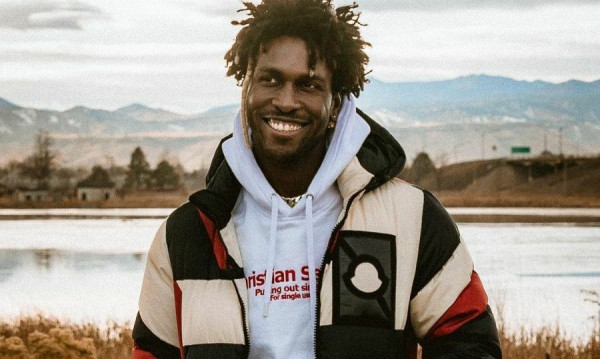Then, under a fiery red hot hue and Perez's scorching number, the thumping bass of Public Enemy's "Fight The Power" explodes. The opening credits to Lee's Do The Right Thing stands as one of the most iconic movie openings. It's electric, and you can't help but feel it in the pit of your gut. Public Enemy's Chuck D is known for that exact type of vibrant energy. The author, artist, leader and frontman has been demolishing mics for one of the most seminal groups in hip hop history. His flow is legendary, and his lyricism is always edifying. Chuck D has been teaching us in various capacities over the years. From MC and leader to television host and Chairman of the Celebrity Board for the forthcoming Universal Hip Hop Museum in New York, he continues to push for knowledge of Black culture on a global scale. With that said, I'm sure it's no surprise he was recently honoured with the first-ever Social Justice Award at Canadian Music Week 2022.
Speaking to and understanding Chuck D, you're immediately aware that he's not the type who does all this for awards and accolades (not that it needs to be said). It's all for the love, the work and artistry. It's about educating the masses and opening our eyes and ears to injustices, race relations, politics, inequality and revolution. But most of all, let's just be real—Public Enemy is a 'badass music group' period. With that same badassery, they tapped into our cerebral. Chuck D was writing songs with topics of relevance—real-life occurrences happening right before his eyes.
"I'm writing songs, right? I was older, you know? I first signed my contract at 26, 27 years old. So, I ain't talking about no 14-year-old teenager. I'm talking about things that affect me. And now hip hop is going to enter its 50th year as an art form. For people to think that this is an adolescent art form that just talks about things that mean nothing over and over again...I mean, it's great, but over and over again? You don't need it over and over again by the same artist," says Chuck D.
He explains, "Eventually, you should expand. I'm going to talk about relevant things. If a person is paying $3,000 rent for an apartment and all of a sudden it goes up to $4,500, you don't think that's something? So that's Public Enemy. Where we came from, we just talked about things that were grown-up."
But the group's spiritedness and perspective weren't the only things that drew us in. It was their idea of being tuned into and respectful of Black culture in other countries, alongside their own in the United States. With the state of America permeating the world, it almost feels like they're the end-all and be-all. However, as much as we love our southern cousins, we're all well aware that it isn't so. It wasn't simply about the American state of life, but being able to also relate to and have knowledge of places they have travelled to perform in the world, including Canada.
"You know, and you deal with Canadian culture—Black Canadian culture, especially in background culture. So if you want to take one city—Toronto, a person needs to know that Toronto's makeup is different from Halifax's makeup. But if you're not plugged into the diaspora, and you think that your United States state of mind is one that everybody's familiar with and got to know, then how much of a connecting artist are you going to be anyway?" he asks.
Part of your artistry should entail how you dig deep to find the root and go from there. Simply put, everyone needs a starting point to find their way.
"I know that Black Canadian rap artists, knowing they have a background in the Caribbean, understand that they also had some organic background of Black folks that migrated there or just a melting pot that was similar to the melting pot in the 1800s in the United States. So even artists had to figure out what the boundaries were. How do you honour the pain and where you come from? How do you honour that?" he says.
We continued to discuss history, identity, leadership, and belonging. As Chuck D recounted his trips to Montreal with his family as a kid, he and I reminisced about Public Enemy's James Lyng concert in the late 80s. As a Montrealer myself, this was back when Montreal's Black community didn't have many options or outlets available to see Black artists in concert. But that show was one of my first musical experiences, eliciting such vivid imagery and sentiments that my brother and I still remember it like it was yesterday. Making music is one thing, but being entrenched in Black culture is another.
I asked Chuck D if he ever fathomed back then that Public Enemy would be so entrenched in our culture and have the relevance it has today. He answered ever so calmly, "Um, yes, ma'am." He states, "Because we came from a situation where we saw it at work and, we saw it work in our community. We came from a community where if we didn't get involved and make it happen, it just wasn't going to happen. So we knew that the way things happened was that we came together and did a lot of events for a generation younger than us in our local because people left them out to dry."
He continues, "If I'm going to use words, I'm going to use music, language arts and culture—the most important thing for me as a world traveller. I set out to do this in 1987 because I have a strong sense of history and geography. We saw our work locally. So why wouldn't it work globally? But you gotta be open. You can't go into somebody else's home and tell what somebody else's home is. You have to be invited. And it's not about how you get in. It's what keeps you. You know what I'm sayin'? Like the music and artists…it's like the whole key is being spectacular over a spectacle. You know? Spectacle gets you in the door. Spectacular keeps you there for more."
Forever learning, educating and continuing with their badass legacy, Public Enemy will always find a way to keep you thinking while ultimately bringing the noise. "We're going to communicate through art. You know, whether it's sight, sounds, story, or style that's going to connect us. This is what we do. This is interwoven as much as the air, food, clothing, style, and whatever. And this is what's going on. Then we can still know that with all that, we can honour the pain and still make it fly, funky, futuristic and bop to it."
Look out for Public Enemy’s latest album release, What You Gonna Do When The Grid Goes Down out now.
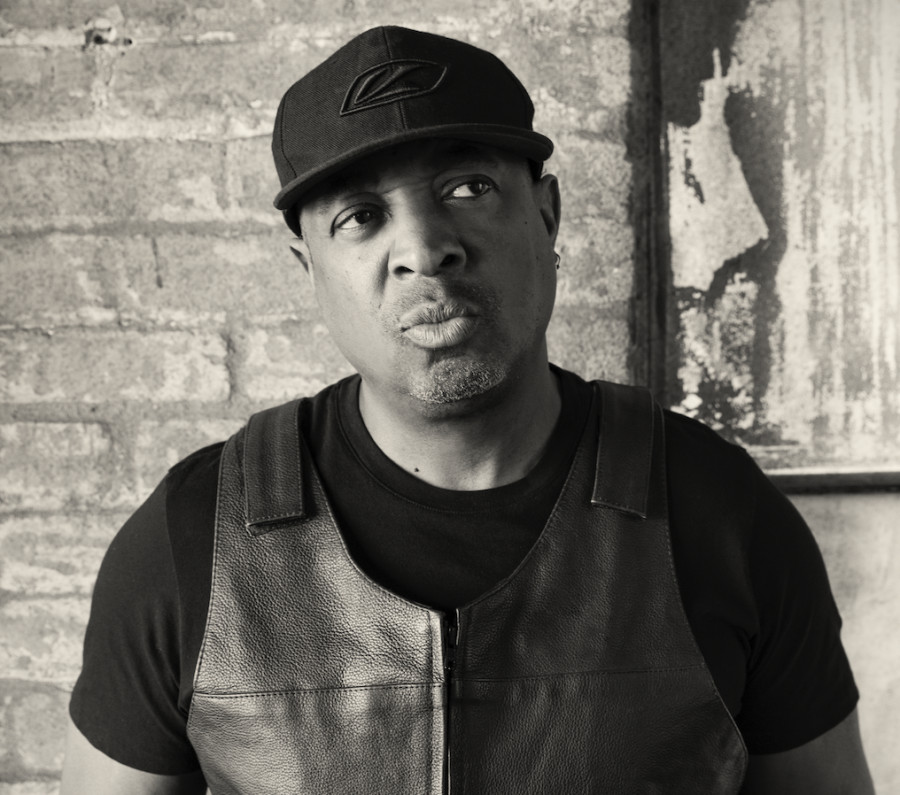
 By
By 




